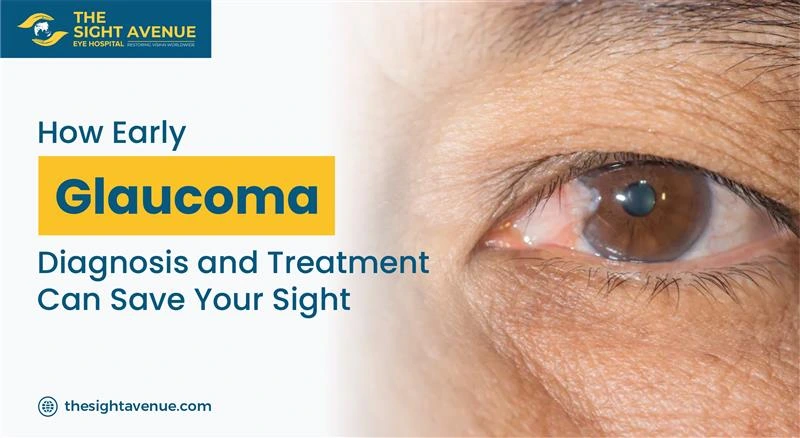Retinal Detachment Surgery in India: Types, Recovery and Success Rate

Retinal detachment surgery is quite effective surgery which have already helped many people to overcome this serious disease. In India, the success rate of retinal detachment surgeries is approximately 90%, making it a highly effective treatment option. But if you still have some confusion about retinal detachment surgery, or it’s success rate, then you don’t need to visit anywhere else, because this blog will clear all your doubts about this surgery.
Understanding Retinal Detachment
Retinal detachment occurs when the retina, a light-sensitive layer at the back of the eye, separates from the underlying tissue. This separation can lead to vision impairment or blindness if not treated quickly.
Key Points:
- Common Symptoms: Flashes of light, sudden onset of floaters, and a shadow or curtain over part of the visual field.
- Urgency: Retinal detachment is a medical emergency and requires immediate attention.
Types of Retinal Detachment Surgery in India
India offers a range of advanced surgical options for treating retinal detachment. The choice of surgery depends on the severity and type of detachment, as well as the patient’s overall health.
1. Pneumatic Retinopexy:
- Procedure: This is a minimally invasive procedure where a gas bubble is injected into the vitreous cavity. The bubble presses the retina back into place against the wall of the eye.
- Ideal For: Smaller retinal tears or detachments that are located in the upper part of the eye.
- Advantages: Less invasive, typically performed under local anesthesia, and has a shorter recovery time.
2. Scleral Buckling:
- Procedure: A flexible band (scleral buckle) is placed around the eye’s circumference to push the wall of the eye against the detached retina.
- Ideal For: Rhegmatogenous retinal detachment, where a tear in the retina allows fluid to seep under it.
- Advantages: Has a long track record of success and can be effective in treating more extensive detachments.
3. Vitrectomy:
- Procedure: The vitreous gel is removed and replaced with a saline solution or a gas bubble. This allows the surgeon to directly access and repair the retina.
- Ideal For: Small retinal tears or areas at risk of detachment.
- Advantages: Can be done in an outpatient setting and is often used as a preventive measure.
4. Laser Photocoagulation:
- Procedure: A laser is used to create tiny burns around the retinal tear, sealing the retina to the underlying tissue and preventing detachment.
- Ideal For: Participation in clinical trials contributes to the advancement of medical research and the development of new treatments.
- Advantages:
Recovery Process After Retinal Detachment Surgery
Recovery from retinal detachment surgery can be different, and it depends on the type of procedure performed. However, there are general guidelines that patients should follow to ensure a smooth recovery.
1. Post-Surgery Care:
- Positioning: Patients who undergo pneumatic retinopexy must maintain a specific head position for several days to keep the gas bubble in place.
- Activity Restrictions: Patients are usually advised to avoid strenuous activities, heavy lifting, and anything that might increase eye pressure.
2. Managing Discomfort:
- Medications: Eye drops are often prescribed to reduce inflammation and prevent infection. Painkillers may also be provided to manage discomfort.
- Common Symptoms: Mild pain, redness, and blurred vision are normal after surgery and typically improve within a few days.
3. Follow-Up Appointments:
- Monitoring: Regular follow-up visits are essential to monitor the healing process and ensure that the retina remains attached.
- Long-Term Care: Patients with retinal detachment should have regular eye exams to monitor for potential recurrences or other complications.
4. Vision Restoration:
- Timeline: Vision may take several weeks to stabilize after surgery. In some cases, full visual recovery may not be possible, especially if the detachment was severe or long-standing.
- Eye Protection: Wearing sunglasses and protective eyewear can help safeguard the eye during the recovery phase.
Success Rate of Retinal Detachment Surgery in India
The success rate of retinal detachment surgery in India is comparable to that in leading global healthcare centers. However, the success of the surgery depends on several factors, including the type of detachment, the promptness of treatment, and the patient’s overall health.
1. Success Rate by Surgery Type:
- Pneumatic Retinopexy: Success rates range from 70% to 85% for initial repairs, with some cases requiring additional procedures.
- Scleral Buckling: Has a success rate of 80% to 90% for reattaching the retina with a single surgery.
- Vitrectomy: Success rates are also high, often ranging from 80% to 90%, especially for complex or recurrent detachments.
2. Factors Affecting Success:
- Early Diagnosis: The sooner the retinal detachment is treated, the higher the chances of successful reattachment and vision preservation.
- Type and Location of Detachment: Large or multiple tears, as well as detachments involving the macula (central part of the retina), may have lower success rates and more limited visual recovery.
3. Patient Experience in India:
- Quality of Care: Indian hospitals and clinics are known for their advanced technology, skilled surgeons, and personalized care.
- Affordability: Retinal detachment surgery in India is significantly more affordable than in many Western countries, making it an attractive option for both domestic and international patients.
Conclusion
Retinal detachment surgery in India offers a high success rate, advanced treatment options, and a compassionate approach to patient care. Whether you’re seeking treatment for a recent detachment or exploring preventive options, India’s world-class eye care facilities provide the expertise and technology needed to restore and protect your vision. So if you are considering getting the best retinal detachment surgery in India then feel free to visit or contact The Sight Avenue Hospital, renowned as the best eye hospital in India.
Recent Blogs
Eye problems? Searching for an eye specialist near me in Delhi NCR? The Sight Avenue has 5 eye clinics in Delhi NCR. Contact us today!
Eye Hospital in Delhi
- The Sight Avenue
- The Sight Avenue
- The Sight Avenue
E-82-A, Ground Floor, Hansraj Gupta Rd, Greater Kailash I, New Delhi, Delhi 110048
Email:enquiry@thesightavenue.com
Tel : 011-4666 0666
Mob : +91-8883330799
Fortis Hospital, Escorts Okhla, New Delhi
Fortis Hospital, Vasant Kunj, New Delhi
Recent Post





